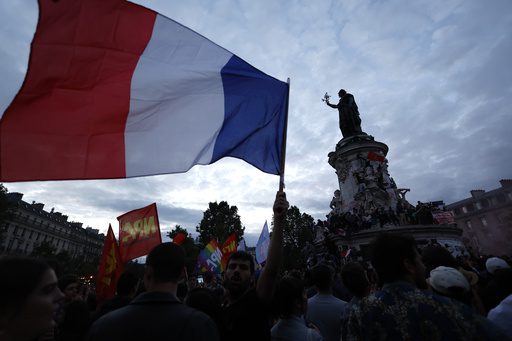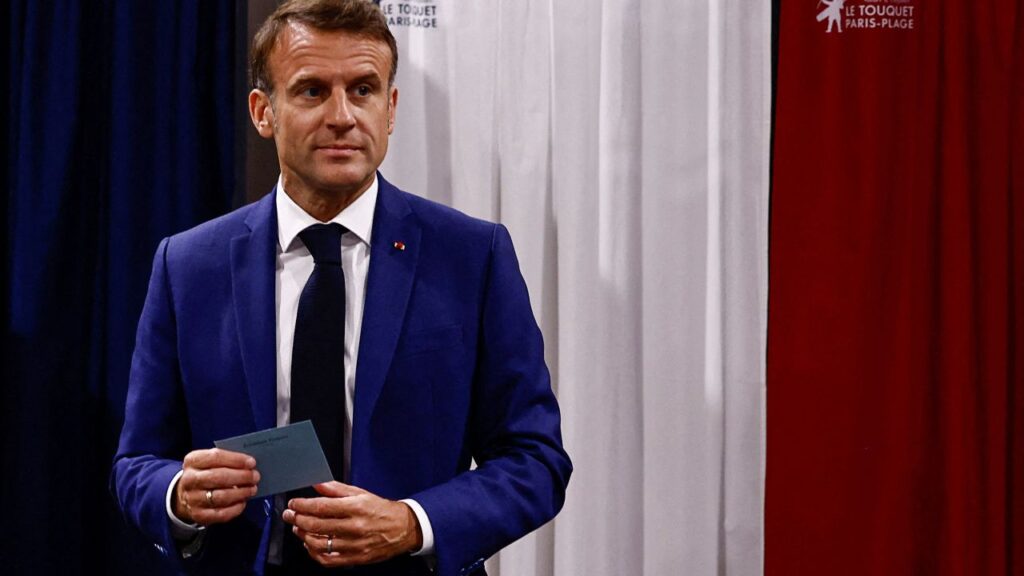
France finds itself in uncharted political territory following legislative elections that have left the nation’s parliament deeply divided. President Emmanuel Macron’s gamble to call snap elections has backfired spectacularly, resulting in a three-way split that threatens to paralyze the European Union’s second-largest economy just weeks before the Paris Olympics thrust the country onto the global stage.
The election results paint a complex picture of French politics. The New Popular Front leftist coalition emerged as the largest bloc with over 180 seats, followed by Macron’s centrist alliance with more than 160 seats. Marine Le Pen’s far-right National Rally and its allies secured over 140 seats, marking a significant increase from their previous showing. Crucially, none of these groups came close to the 289 seats required for a majority in the 577-seat National Assembly.

This fragmented outcome has immediate consequences. Prime Minister Gabriel Attal announced his resignation, though he may remain in office through the Olympics or longer if necessary. Financial markets reacted swiftly, with France’s main share index opening lower in response to the political uncertainty.
The implications of this political deadlock extend far beyond France’s borders. Macron’s ability to implement his pro-business reforms is now severely compromised, potentially impacting France’s economic trajectory. On the international stage, questions arise about France’s future stance on critical issues such as the Ukraine war and its role in global diplomacy.
The leftist coalition, led by Jean-Luc Mélenchon, is pushing to form a government and implement an ambitious program of increased public spending and higher taxes on wealth. However, Macron warns that such policies could be financially ruinous for France, which is already under scrutiny from EU watchdogs for its debt levels.

Despite being limited by political maneuvering, the far-right National Rally has made significant gains. Le Pen views this election as laying the groundwork for future victories, potentially reshaping France’s political landscape in the long term.
Complicating matters further is France’s lack of tradition in forming coalition governments. The country’s centralized political system adds another layer of complexity to the task of creating a functional government in this fractured parliamentary landscape.
The election campaign itself was marred by incidents of racism, antisemitism, and physical attacks on candidates – unusual occurrences in French politics. Russian disinformation campaigns also played a role in shaping the electoral narrative, adding to the charged atmosphere.
As newly elected lawmakers converge on the National Assembly to begin negotiations, Macron prepares to depart for a NATO summit in Washington. With three years remaining in his presidential term, he faces the daunting challenge of governing a deeply divided nation and maintaining France’s influence on the world stage.
The world watches closely as France grapples with this unprecedented political situation. The outcome of these negotiations will not only shape France’s domestic policies but also influence its role in European and global affairs. With the Paris Olympics less than three weeks away, the pressure is on to form a functional government and project stability to the international community.
This political deadlock serves as a stark reminder of the challenges facing Western democracies in an era of increasing polarization. As France navigates these turbulent waters, the repercussions of its political instability may be felt far beyond its borders, potentially impacting European economic stability and the broader geopolitical landscape.
AP



